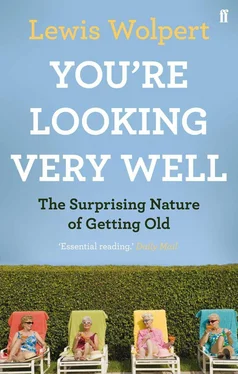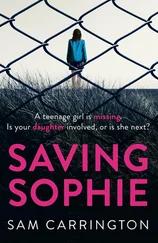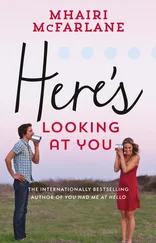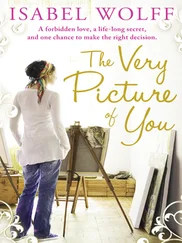Carl Jung wrote that ‘it is hygienic… to discover in death a goal to which one can strive; and that shrinking away from it is something unhealthy and abnormal which robs the second half of life of its purpose.’ It is suggested that being reminded of our mortality can be a stimulus to a spiritual awakening. Barry Cryer from BBC Radio’s Sorry I Haven’t a Clue was asked when 74 if he feared death and replied, ‘No. I’m getting old, but it’s unreal. It’s meaningless. I don’t mean that I’m kidding myself, but age is just a number. I’m not afraid of death.’ Woody Allen said, ‘I just don’t want to be there when it happens.’
Does ageing itself lead to death? A peculiar and quite difficult problem is whether anyone actually dies from old age, and the answer seems to be no. There is almost always a good medical explanation for anyone who dies when very old in terms of the abnormal behaviour of their cells and organs that gives rise to a well-recognised illness. However, death certificates can give the cause of death as ‘old age’ in the UK, and some do. This fits with the countless grandparents that are claimed by their relatives to have ‘died of old age’. They attribute an elderly person’s death to old age because no other obvious explanation emerges. But in the USA, nobody has died of old age since 1951, the year the government eliminated that wording on death certificates. There is a limit to the human lifespan, but in many cases elderly deaths are pinned on old age simply because no one looked very hard for the true cause.
Autopsies of 40 centenarians who died at home, and seemed to be quite healthy, found a cause in every case. The very old are often felled by an infection or ruptures in the aorta, the major vessel that moves blood from the heart, and more than one factor often triggers death. While no one dies of old age, ageing does lead to the inability to deal with a disease that may be partly due to the ageing process itself.
Some two thousand years ago Marcus Aurelius commented: ‘Mark how fleeting and paltry is the estate of man—yesterday an embryo, tomorrow a mummy or ashes.’ When does death begin? Perhaps at birth.
Even if an illness is ultimately to blame for a death, it is often preceded by a downward spiral that renders a person particularly vulnerable to dying. More than two thirds of those who die over 85 are women who are suffering from lingering illnesses. Men may avoid going to the doctor and are accident prone. Falls are a major cause of disability and a leading cause of death from injury in people aged over 75 in the UK. The main causes of death over 65—heart disease and cancer—are the same for both sexes.
The causes of death have changed. The leading causes of death in the US in 1900 were infectious diseases, but by 1940 they were heart disease, cancer and strokes, and by 2004 heart disease and cancer. Figures were quite similar for those in the younger age groups. Since the 1980s there has been a decline in death rates for the over-65s but none for younger groups such as those between 50 and 64. As we have seen, 80 per cent of deaths are of those over 65 years. More people now die as a result of chronic illnesses such as heart disease, vascular disease including stroke, respiratory disease and cancer. Older people may suffer from several conditions at the same time, which may make it difficult to determine the main cause of death. There seems to be little genetic influence on the age of death, as identical twins still differed by 14 years, while non-identical differed by 19 years. But, as discussed earlier, the APOe4 gene, which is linked to getting Alzheimer’s, is often absent in the very old.
In some cases older people may be transferred into a hospice for terminal care, which helps people to live as actively as possible after diagnosis to the end of their lives, however long that may be. In spite of the fact that about 20 per cent of older people die in care homes there has been little emphasis on the needs of older people dying in a care-home setting or how well these are met. In order to provide good care for people at the end of their lives, care-home staff need external medical support, particularly from GPs. Without this support, symptom relief may be poor and a resident may have to be transferred to hospital or hospice to die. Although this may be appropriate in some situations, there are inappropriate transfers from care homes. This can be traumatic for the older people and their families. The factors which can influence this process include a lack of forward planning, no knowledge of the older person’s preference, poor relationships with GPs and a shortage of resources in the care home. Several commentators have suggested that it is only by removing the taboo of the discussion of death, throughout all stages of life, that a better understanding of the realities of dying and death, better communication skills and ultimately better service provision will be delivered.
Caring for someone who is dying can be distressing and demanding for carers, including family, and in the case of people with chronic illnesses this may extend over a long period of time. If the demands on carers become too great the arrangements for the care of the dying person may break down. In practical terms this means that the dying person may not be able to die at home, even if that is their wish. Carers need information and both practical and psychological support. Professionals need to coordinate the support they provide to both the dying person and to carers. Although the gap in life expectancy between women and men has narrowed, women are still more likely to outlive men. Bereavement and coping alone are thus much more common experiences for women than for men and are likely to remain so. Not untypically, one woman whose husband was in a home experienced guilt, sadness, shame, love, and resentment that he was still alive.
While three quarters would prefer to die at home, people who are recently bereaved, and therefore have experience of death, are slightly more likely to prefer in-patient hospice care. There is a clear inverse relationship between where people say they want to spend the last period of their lives and where they actually die. There is significant variation across European countries as far as place of death is concerned, with some of the highest rates of deaths in hospital occurring in England and Wales. This suggests that the organisation of services plays an important role in determining the options that people can consider.
Health professionals must ensure that older people who want information about their diagnoses and prognoses should be given this in a sensitive and appropriate manner. Older people who wish to do so should be given the opportunity to discuss their dying and death. People at the end of their lives should be given a choice of where they wish to die, and how they wish to be treated, regardless of diagnosis. If older people are not in a position to make such choices, because of mental incapacity, decisions should be made in their best interests and in consultation with people who are close to them.
The old do commit suicide, but are not more involved in suicidal thinking than the young—thinking about suicide is most common in the 25–44 age group, though feelings of hopelessness are common in the elderly. Ageist attitudes can also be found in the language used to describe the end of older people’s lives, and in the description of the suicide of older people, which tends to be portrayed as heroic rather than as tragic. Indirect forms of self-destruction involve refusing treatment and food and are most common in care or nursing homes. Self-harm usually involves poisoning. Older men commit suicide more than women. Research has found that over half of older people who take their own lives were experiencing depression at the time of death. Men over the age of 75 have the highest suicide rate amongst all groups. For some, death can be welcome if the suffering is severe, and there is no hope of improvement. A recent study has identified illnesses which may increase the suicide risk. Depression, bipolar disorder (manic-depressive illness) and severe pain—but not dementia—were associated with the largest increases in suicide risk. However, several other chronic illnesses including congestive heart failure, and chronic lung disease, were also associated with an increased risk for suicide. The researchers also found that treatment for multiple illnesses was strongly related to an increased risk of suicide, and that most of the patients who committed suicide visited a physician in the month before death, about half of them during the preceding week.
Читать дальше












